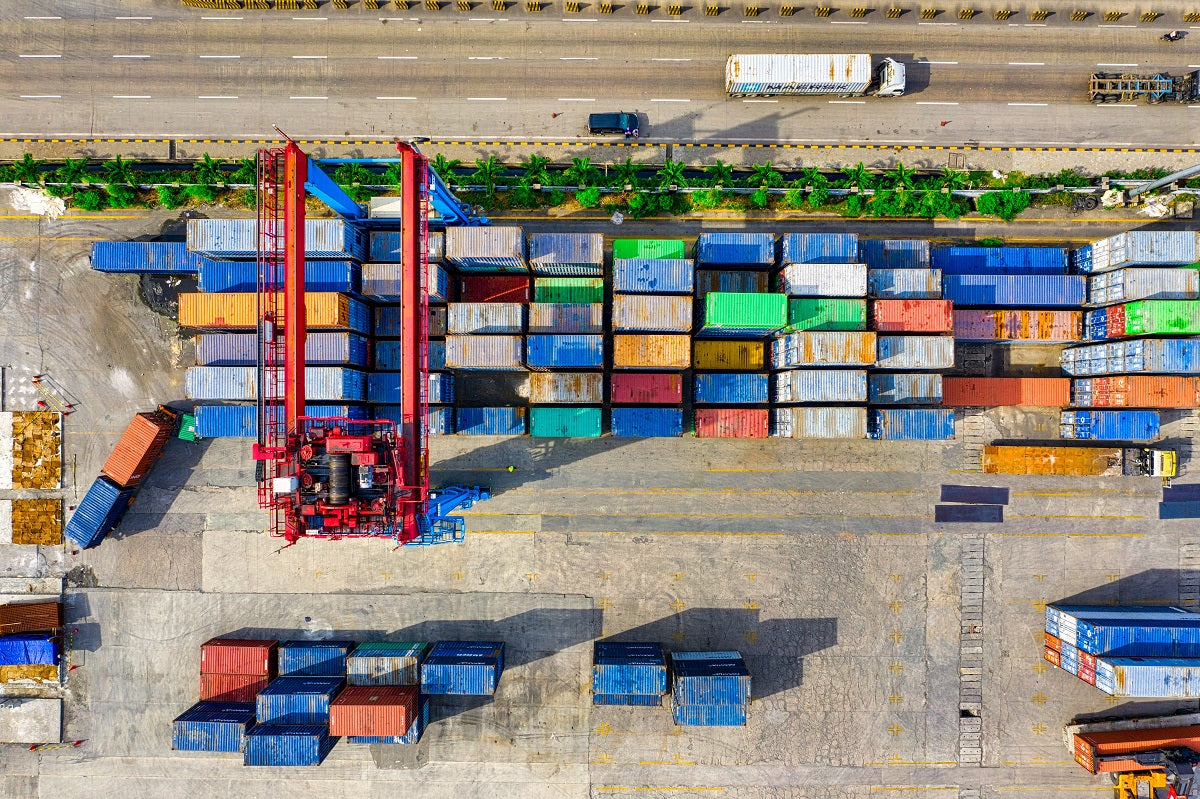B2B wholesale plays an important role in the flow of goods from manufacturers to consumers. B2B wholesalers act as supply chain intermediaries in most industries, buying products from manufacturers and reselling them in bulk to retailers and other businesses.
We’ll show you how B2B wholesale works, the benefits and challenges it presents, and how you can run a successful B2B wholesale business.
B2B Wholesale: Summarizing the Most Important Things
B2B wholesale is a business model in which products are purchased directly from manufacturers and then resold to business customers through their own distribution channels. The model plays an important role in the economy and can be implemented in fixed trade and e-commerce.
Are you ready to turn your ideas into reality?
Try Shopify for free and sell as much as you want!
Table of contents:
What is B2B Wholesale?
In short, B2B wholesale is selling goods in bulk to other companies. Typically, wholesalers buy large quantities of products from producers, store them in warehouses, and resell them in small quantities to retailers or other businesses at lower prices.
Because wholesalers often carry items from many different manufacturers, they are a convenient source for business customers to source most of their inventory. An important benefit is higher volume and average order value compared to B2C sales.
Many B2B wholesalers specialize in selling to retailers, while others also sell directly to larger organizations. Common customers of B2B wholesale include:
- Retailers and other resellers: These companies buy products at wholesale prices and resell them to consumers at a higher price for a profit.
- Larger institutions (e.g. schools, hospitals): They are often purchased in bulk at discounted prices.
- manufacturer: In some cases, manufacturers buy goods from wholesalers and process them into other products.
Wholesalers typically specialize in certain industries or product categories, such as consumer electronics, home and kitchen products, apparel, personal care, books and stationery, or healthcare.
Read the tips: In this article, you’ll learn how to start wholesale for resellers.
Advantages and Challenges

B2B wholesale offers many advantages – not just for the wholesalers themselves. All those involved in the supply chain, such as manufacturers and retailers, also benefit from this business model.
We have summarized the most important advantages for you:
higher average order value
B2B wholesale transactions generate more revenue than selling individual products to consumers. This means you can make big bucks with just one order.
high sales
Since wholesalers typically sell in bulk, they tend to achieve higher overall sales through repeat purchases.
wider market access
Through B2B wholesale, products quickly reach a wide audience. Selling products through wholesalers can help manufacturers quickly enter the market and increase their popularity.
Read the tips: We compared B2B with B2C. We cover the most important differences in the article.
Focus on core business
For manufacturers, distribution through wholesalers also enables them to focus on their core areas, namely product development and manufacturing.
Warehousing and Inventory Management
Wholesalers typically take on a large portion of the responsibility for warehousing and managing product inventory. This enables manufacturers and retailers to keep costs low.
Free Webinar: To Your Own Online Store in 30 Minutes
Do you want to see for yourself how fast you can open a store?
Shopify expert and passionate store owner Adrian Piegsa shows you how to register, link domains, choose products, and of course enforce all legal requirements.
join for free
However, B2B wholesale can also be challenging. Wholesalers must maintain their own business while managing complex relationships with business customers. In addition, competition from B2B online marketplaces is also increasing.
Key challenges include:
technological change
E-commerce has also had a major impact on B2B wholesale. In the future, wholesalers who do not take advantage of digital distribution will be left behind and unable to keep up with the competition. It is already worthwhile for retailers to bring their business online.
global competition
As the Internet becomes more relevant, so does international competition. This in turn increases price pressure, which hits wholesalers with low margins the hardest. Therefore, it is important to expand your business into new markets while controlling costs.
Online marketplaces are also part of the competition for B2B wholesalers. Many manufacturers offer their products on the market without first passing them on to wholesalers.
Read the tips: To be able to keep up with the competition, market analysis is worthwhile. In this article, you will learn more about this topic!
customer relationship management
Typically, business customers take more time than consumers to make a purchasing decision. However, once they choose a wholesaler, they tend to make repeat purchases.
Therefore, it is particularly important to establish and maintain a close relationship with customers. B2B wholesalers need to focus on delivering a consistent buying experience that wows their customers.
ensure profitability
Wholesalers invest heavily in inventory and sell items at a discount – which means they have to work efficiently to keep their businesses running.
Streamlined warehousing, inventory management, ordering and fulfillment processes are critical. Customers also expect the convenience of ordering online, so it’s also important to have a user-friendly e-commerce platform integrated with inventory management and order processing.
Read the tips: In this article, we will introduce you to the best eCommerce platforms.
The Secret to B2B Wholesale Trade Success

As you can see in the challenges, there are a few things to consider when running a successful B2B wholesale business. We’ve put together some tips for you below:
Efficient Inventory Management
Effectively managing inventory is at the heart of a wholesale business. As a B2B wholesaler, you should be able to accurately track inventory in your warehouse, replenish as needed, and efficiently pick orders as they are fulfilled. Inventory management software can help with this by tracking inventory throughout the supply chain and automating reordering.
Read the tips: We’re here to show you how to use SKUs in your warehouse.
Build strong customer relationships
Enterprise customers generate significant sales over time. Therefore, it is even more important to cultivate these customer relationships and ensure your customers are happy. Being close to your customers can also help you better understand their needs and develop targeted wholesale marketing strategies.
Our successful retailers give you more tips on our podcast. listen!
Better subscribe directly to Shopify Podcasts and never miss an episode again!
track your cash flow
Close monitoring of accounts receivable and accounts payable is important to avoid cash flow problems. With many wholesalers carrying large amounts of money in their inventory, they need to ensure that payments from customers and invoices from suppliers arrive on time.
Read the tips: You can find tips on how to issue an invoice in this article.
Use discounts sparingly
It’s no secret that deep discounts lure customers. However, these also reduce your profits. So double-check each discount to ensure your profit margin.
Automate your operations with a B2B platform
Using a robust B2B platform can dramatically improve efficiency, responsiveness, and customer satisfaction. A good B2B solution should allow you to automate processes. Not only does this automation ensure smoother processes and lower costs, but it also leads to repeat purchases by increasing customer satisfaction.
With “B2B on Shopify,” Shopify Plus gives you a modern B2B platform that helps you run and scale your wholesale business with tools that give you flexibility and customization—all from one Intuitive management area.
Read the tips: We have rounded up 5 of the best B2B platforms for you in this blog post.
in conclusion

As you can see, B2B wholesale has many advantages. While doing business in this space presents some challenges, it is still a lucrative branch of the B2B world. With our tips for running a successful B2B wholesale business and the right B2B platform, nothing can stand in the way of your success! what are you waiting for?
Are you ready to turn your ideas into reality?
Try Shopify for free and sell as much as you want!
B2B Wholesale FAQ
What is a B2B wholesale company?
Companies following the B2B wholesale business model buy products from manufacturers and resell in bulk to retailers or other companies.
How do B2B wholesale companies make money?
B2B wholesalers make money by buying products in large quantities from manufacturers at low prices and then selling smaller quantities to retailers or other business customers at higher prices. They make a profit to cover the cost of warehousing, inventory management and all other business activities.
What are the advantages of B2B wholesale for retailers?
Typically, business partners purchase in bulk from wholesalers. This gives you a calculable turnover and you are not too affected by fluctuations in demand.
Are there any downsides to B2B wholesale?
As buyers of B2B wholesale decide which products they want to buy for resale, offers must be as attractive as possible to them. For this, the product should be available in large quantities and the price should be as low as possible, which of course reduces your profit margins.
 About the author: Alice Viete is a content marketing expert. As an agency owner, she supports B2B and eCommerce companies in implementing their personalized content strategies. On the Shopify Blog, she writes about current topics of successful retailers and online transactions.
About the author: Alice Viete is a content marketing expert. As an agency owner, she supports B2B and eCommerce companies in implementing their personalized content strategies. On the Shopify Blog, she writes about current topics of successful retailers and online transactions.

